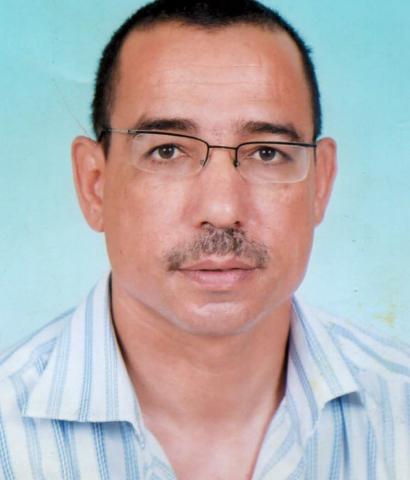Interview with longlisted author Abdul-Kareem Jouaity
07/02/2017

When did you begin writing The North Africans and where did the inspiration for it come from?
I have always been preoccupied with the question of what it means to be Moroccan - the question of identity. One day as workmen were digging the foundations of a public library (at the time I was working for the Ministry of Culture), they came across human bones. I and the representative of the local authority had to write a report about them for the agent of the king who would issue the order for them to be re-buried in the cemetery. As he was writing the report, I asked him jokingly: "Which cemetery shall we bury them in, since Jews, Christians and Muslims have all been here and we don't know what religion they were?" Did they die a natural death or were they killed? And why were there skulls without skeletons? These bones had a magical effect on me and disturbed my sleep for several nights. They flung me into the wide expanses of history. I spent more than six years reading historical sources, explorers' accounts, tales of heroic exploits and miracles and Islamic law, everything related to Morocco as it came into being. I searched for stable points in this shifting identity, looking for this history which echoed within me, for the voices of the dead who were taking on my voice, for their movements as they came alive in mine. I did not deal with the past as something dead and gone, but as a question itching in the body of the present. As I read, I noted down texts, thoughts and comments on scraps of paper. Most of these became the ramblings of the soldier as he hallucinates about Morocco and the Moroccans. Apart from this, and since the genre of the novel is, as Goytisolo said, the empire of doubt, and because it is ambivalent and subversive, I needed two brothers: one disabled by the war and one blind. I needed tragic conditions to pinpoint what was withering away, what was tearing us apart, what was obscured in Moroccan identity, where a skilful hand has been at work to construct what should be remembered and what should be forgotten. I needed them in order to talk about those dead people as if they were alive, about powerlessness and especially about this blindness enveloping everything and causing daily tragedies for the peoples.
Did the novel take long to write and where were you when you finished it?
The North Africans represents seven years' continuous work of research and investigation. During this period, I wrote the second and third chapters and most of the fragments of the soldier. After the overall vision and structure of it were finished, I began to write, at the start of July, Summer 2015. I only ever write when the weather is hot. I finished it at the end of October. I used to work from 5.30am until two or three in the afternoon. I wrote it in my little garden 12km from the city. I have chosen to live here permanently. I have no neighbours, apart from wide fields, trees, and some shepherds and farmers busy with their work. The area is called Al-Kharwaa'a and it is on a flat plain, a stone's throw from the mountain. The place gives me the tranquility and peace needed for writing, and in particular the isolation which helps aspiring writing to mature.
How have readers and critics received it?
Since it was published, The North Africans has been celebrated in an amazing way by writers, critics and readers. Dozens of articles have been written about it and things said which embarrass me (that it is a great novel, astonishing, exceptional, world-class). But what has pleased me most is the praise it has received from important historians and geographers, as well as filmmakers, journalists and politicians. I think that two things have played a large part in evoking this praise: approaching the question of identity in fictional form with uncompromising audacity and the fact that the novel contains a vast amount of information about the genealogy of the formation of Morocco. The novel is being read and has a strong presence on social media networks. Many have read it and are recommending it to others.
What is your next literary project after this novel?
I am thinking about the failure of change in Morocco and the Arab world. Every time some positive indications of a new age appear, present reality stifles them. The past is always repeated in the future. This is the subject of my next novel, which will be set in the mountains in different time periods. I will write about the subject of change as embodied in the struggle of mountain tribes. I will need years to write an epic saga with intertwined events and tens of characters.
(read this article in Arabic here)
